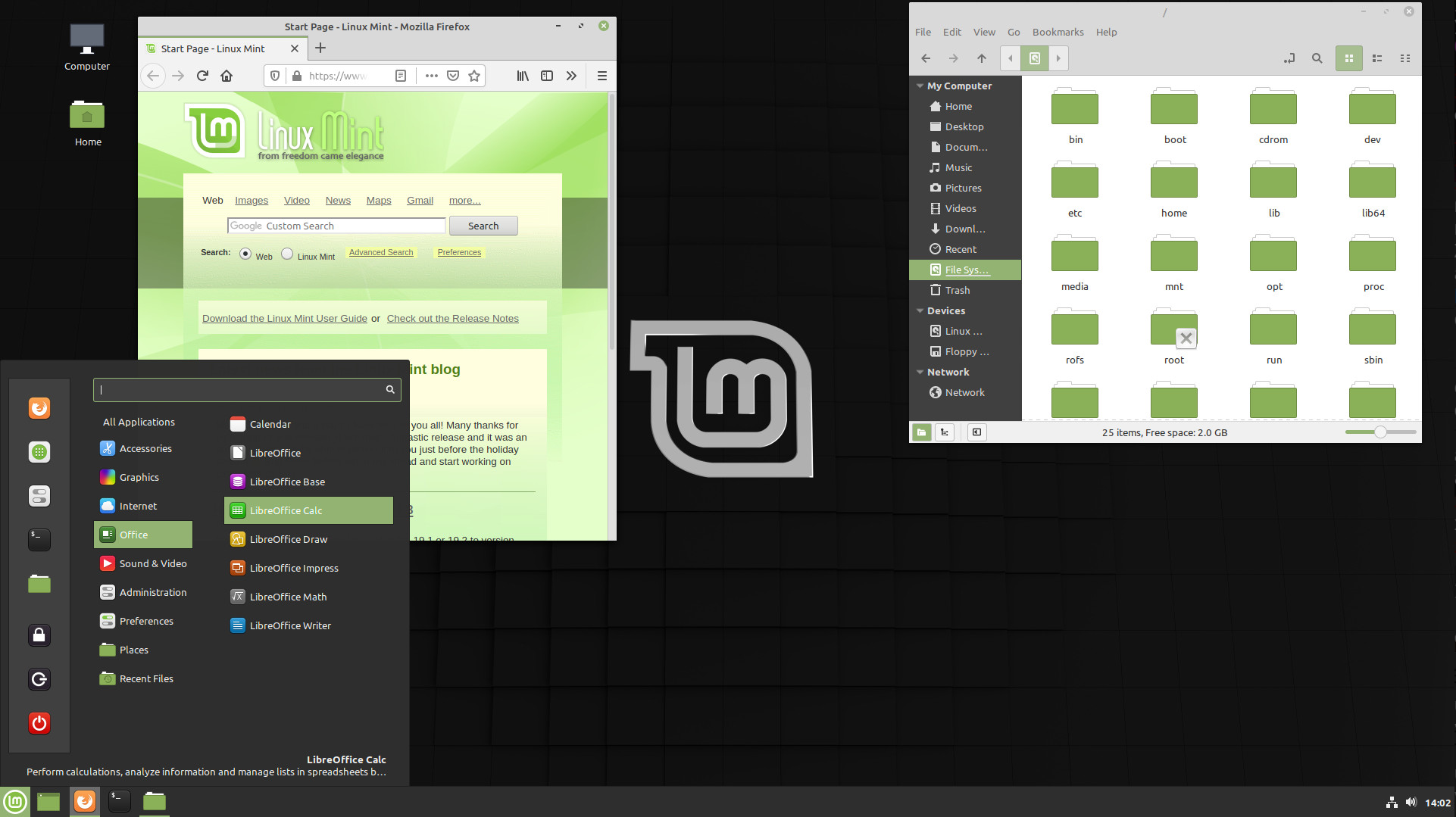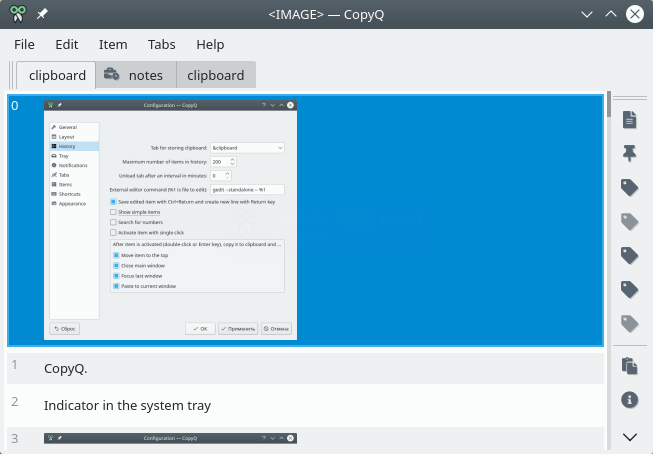

- COPYQ FOR LINUX MINT UPDATE
- COPYQ FOR LINUX MINT TRIAL
- COPYQ FOR LINUX MINT PC
- COPYQ FOR LINUX MINT OFFLINE
Why do you think it needs to be constantly updated? CDs are ancient tech, and so is FLAC. And the links to MusicBrainz and Discogs via the CUETOOLS addon is very handy.ĮAC is ripping CDs. The nice thing about EAC is the very usable error checking. I don’t see anything going on for Paranoia IV.ĭid you see how contradictory your post is? One side says “Windows has too many updates” and then on the EAC side you say “not enough updates”. On Linux cdparanoia is the main component of many other CD ripper but Paranoia III is very old (from 2008), and so I’m not sure if this is the right horse. It should be open source (with providing a deb-Package). It should work accurately (AccurateRip) and have a feasible error correction.

It should also be possible to do everything in the shell because I just want to do it remote by SSH connection. I need an alternative way of doing the audio extraction and it should run on Linux. I guess it’s possible to run EAC also und Wine, but as EAC is not very recent and I will not go on with it in future.
COPYQ FOR LINUX MINT PC
EAC is also the only reason for also having a Windows partition on my HTPC, the only PC with an optical drive. I’ve chosen EAC (and Windows) because it is/was kind of best-free qualitative ripping software. forum not available).Įven if EAC did the main job well, I’m not happy at all.
COPYQ FOR LINUX MINT UPDATE
The last update is older than 3 years, the website looks unrepentant (e.g. I’m pissed off by Win10 (and MS at all) ĮAC itself seems not very alive.
COPYQ FOR LINUX MINT TRIAL
You can download a 30-Day Trial of Macrium Reflect Home, Workstation, Server, Server Plus, or Site Manager.Currently I’m ripping my CD’s with Exact Audio Copy (EAC), running under Windows 10. LVM is not support by Macrium Reflect, meaning that the Linux disk will either have to be GPT or MBR to be cloned. When cloning a Linux disk, a third-partitioning scheme must also be considered Logical Volume Manager (LVM). When cloning a Windows disk, the only partitioning schemes that must be considered are GUID Partition Table (GPT) and Master Boot Record (MBR).

You can clone these partitions from either your Windows OS or Rescue Media.
COPYQ FOR LINUX MINT OFFLINE
Since Macrium Reflect is a Windows application it cannot be installed on A Linux partition, these partitions must be cloned while in an offline state. The file systems previously discussed are mainly supported in consideration to dual boot systems, and people who want to backup their whole disk, secondary boot drives included. Macrium Reflect is a Windows application and as such only run on the Windows platform. Note: Windows by default will not recognise the Ext file system, you will not be able to browse Ext file system included in an image without the use of an additional driver, the Knowledgebase article linked below contains further details: When performing a backup, the resultant image may not be much larger than when performing an intelligent sector copy, due to long runs of 0s being very effectively compressed. This will take more time due all sectors being copied, not just the in use sectors. You will still be able to perform the clone, however, a Forensic Sector Copy will be performed. less common, Linux file systems (XFS, JFS, BTRFS, etc) are not natively supported by Reflect. The Ext 2,3,4 file systems are supported by Macrium Reflect, meaning that an Intelligent Sector Copy can be performed. Linux is often associated with the Extend File System (Ext), since it was created specifically for use with the Linux kernel. In this blog post we will be discussing these factors in regard to cloning a disk, however, the same will apply when imaging and restoring Linux disks. When cloning a Linux file system, there are some important factors that must be taken into account. For brevity, though cloning is discussed, what follows applies equally to both.

The following applies identically to image backups and clones.


 0 kommentar(er)
0 kommentar(er)
